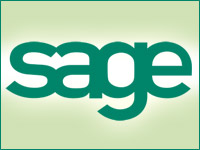
I liked what Sage did last week in agreeing to sell off some non-core assets to partners, and I am most interested in the decision to sell ACT! (Venerable ACT! if you ask me) and SalesLogix. The move reduced Sage’s bullpen of CRM solutions from three to one — and that’s the right number for this market.
Buying and owning three CRM applications might have made sense when the market was forming and software required a traditional installation. At a time when software is moving to the cloud, however, and scalability is a non-issue, it made little sense to pursue the small-medium-large customer strategy that three products afforded. That strategy was a bit forced; there was never a good rationale for segmenting the market and expecting customers to outgrow one product and migrate to the next one on the list as the company’s needs changed.
Consideration for Partners
Sage earned its spurs in accounting systems. In that market, having multiple product lines is a great strategy because it enables Sage to cover a broad front that includes construction, manufacturing and real estate. Given Sage’s business model of selling through channels, partners could specialize in the area of accounting most interesting to them. Where Sage has been able to verticalize for the small-medium market, it’s been great. It couldn’t do the same, though, with the front office — a lesson it learned the hard way, I think.
Most importantly, Sage kept the right CRM product. The remaining Sage CRM is built for deployment as a hosted, on-premise or cloud solution. It’s a strategy that all the majors have adopted, save Salesforce, and it will give the company greater latitude in diving into expanding markets and competing with the likes of Microsoft, SAP and Oracle.
The wild card in all this is the partner community. Sage has been slow to change, in part because the company respected its partners and wanted to bring them along at a pace that protected each partner’s revenue stream. The markets, however, have not stood still, and it was time to fish or cut bait. Presumably the company spoke with its partners before making the move.
It should be said that in so doing, Sage has preserved the relationship between its partners and the brands being sold, perhaps to its detriment. That’s going above and beyond in my book and should be noted by remaining partners and potential future ones.
Time to Cull the Herd
What does Sage do now? In my humble opinion, the company does whatever it takes to nail down its partner relationships and to put programs in place to attract new partners. It should next make a series of announcements about relevant things like API and platform, cloud, mobility and social. These moves should help focus Sage’s front office strategy and enable the company to compete effectively with the others.
This news is a direct result of strategies put in place by Sage North America CEO Pascal Houillon, who has said for some time that there are some businesses and products that are core to Sage’s mission and some that are not.
That SalesLogix was not seen as a core element of the company’s market outreach was public knowledge going back at least as far as Sage Summit 2012, the annual partner meeting. It’s really just the other side of the coin for a company that has grown by acquisition. If you grow by acquisition, you need to cull the herd now and then, and this was the time.
Painless Cloud Migration
SalesLogix and ACT! are primarily old style applications made to be installed. In recent years the company had tried to make them available as hosted solutions, but those ideas apparently never caught on with the partners.This left Sage will little choice other than to sell its aging CRM products.
The remaining Sage CRM has all of the attributes that will appeal to partners by enabling them to install software and thereby maintain very close service relationships with their customers. It will also give partners an option — a painless way to move to the cloud and to deliver the same functionality without having to change product lines.
With the sale of SalesLogix and ACT! I see a beginning and not an ending. Under Houillon’s guidance, the company is steadily moving to the cloud, positioning itself for the next decade and beyond. Sage is making the transition as delicately as a company can with something like this. However, great companies also build things — not just products, but edifices of brands, customers and partners. They build whole ecosystems solutions that are so well tailored that they build walled gardens around customers.
For many years Sage has done this with on-premise solutions for the SMB market. Now, the company’s greater focus on the cloud makes it mandatory to revisit the idea.

























































